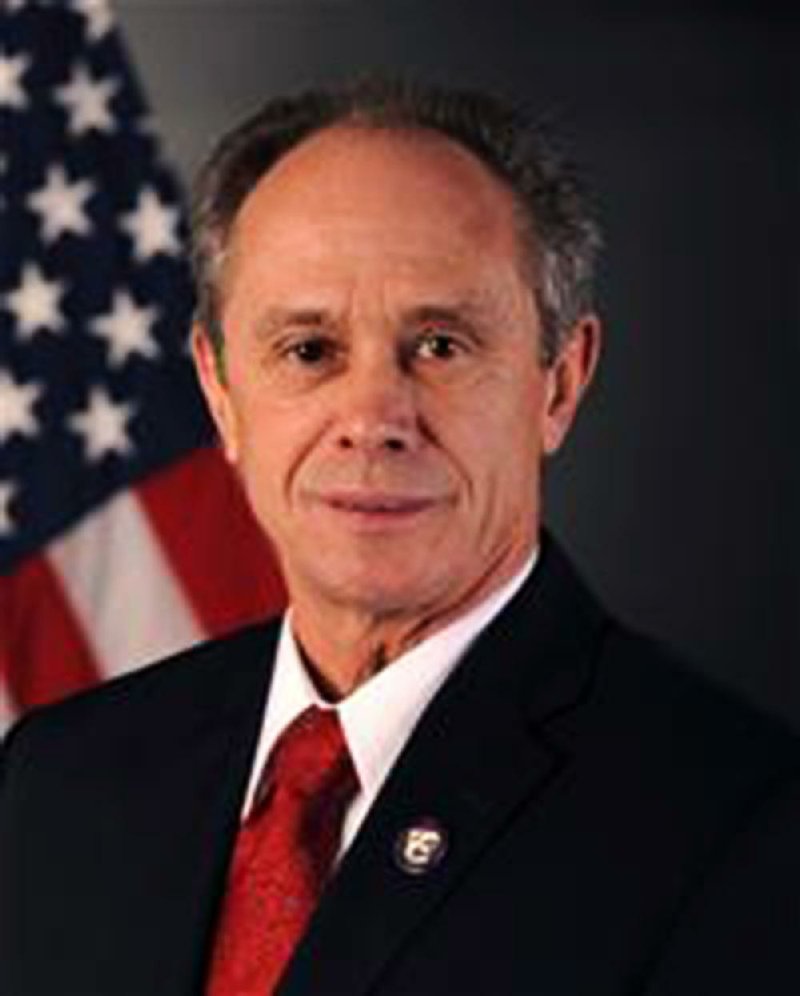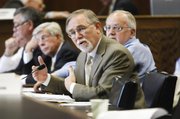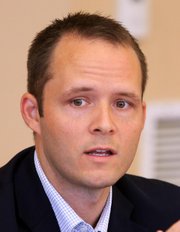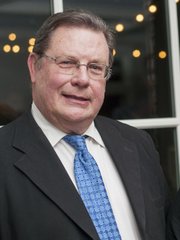Supporters of a proposed tax dedicated to transit for Pulaski County that is on the March 1 ballot have "more homework" to do.
That was the message from Jacksonville Mayor Gary Fletcher, president of the Metroplan board of directors, after a resolution supporting the tax failed for lack of a motion Wednesday at the board's monthly meeting.
"It's not a great environment right now to be pushing something -- unless you can convince people otherwise, and, evidently, the board has not been convinced," Fletcher said.
The proposed quarter-percentage-point increase in the county sales tax would raise $18 million annually for transit-service improvements.
It isn't the only tax increase proposal on the calendar of Fletcher's city.
Jacksonville voters will be going to the polls in a Feb. 9 special election to consider a 7.6-mill property-tax increase for school construction for the new Jacksonville/North Pulaski School district, which will begin operating as a district independent of the Pulaski County Special School District on July 1. Early voting begins Tuesday.
"You've seen what happened in there," Fletcher said after the Metroplan meeting. "Nobody made a motion, much less a second. It's a widespread feeling. I was a little shocked."
Metroplan is the long-range transportation planning agency for central Arkansas. Its board is composed of mayors and county judges from a region that includes Faulkner, Saline and Lonoke counties in addition to Pulaski County.
The board's regional representation was part of the problem with considering a resolution limited to a Pulaski County ballot proposal, Jim McKenzie, the agency's executive director, said after the meeting.
"Probably, folks wanted to hear a formal presentation, and you've got most of the board not from Pulaski County and won't be voting on it and aren't familiar with it," he said."I think that as much as anything is what it was."
Little Rock Mayor Mark Stodola said he and other board members didn't have enough time to review the proposal.
"It was just put on here quite quickly, and no one knew about it," he said. "I don't want to take an action on something that I haven't fully digested and reviewed.
"The staff said they were surprised by it. I was a little surprised by it. I'll take it back and let our city board know about it. I don't like surprises. I think it's appropriate for me to take it back to the [city] Board of Directors"
It likely didn't help matters that Jarod Varner, the executive director for Rock Region Metro, the transit agency, wasn't available. He is a member of the Metroplan board but wasn't at the board meeting because he is out of town this week, agency spokesman Becca Green said after the meeting.
She said Metroplan's Regional Planning Advisory Council embraced the plan a week earlier after hearing a presentation from Varner. The board will get that opportunity next month, Green said.
The council is composed of about 30 members appointed by Metroplan jurisdictions on the basis of population and about 20 at-large appointees. It is responsible for helping develop the region's long-range transportation plan, called Move Central Arkansas, and providing "direction and oversight of the public participation process in the development of plans, processes and policies," according to Metroplan. Its recommendations are nonbinding on the agency board.
The resolution wasn't on the council agenda last week, but members pushed for it after noting a dedicated transit tax has been the goal of the region's long-range plan for years.
"As you know, the board's advisory council supported the plan unanimously after having the opportunity to learn more about it," Green said. "It seems the Metroplan board wasn't prepared to discuss this today, and we're looking forward to hosting a Move Central Arkansas plan presentation at their February meeting."
Varner and other supporters say approval of the tax would give the transit agency more leeway to tailor routes to maximize bus usage as part of an effort to attract "choice riders," passengers who don't have to use transit but would use it if it was more convenient.
A consultant retained by Rock Region Metro said that implementing the plan would boost ridership by 30 percent to 40 percent. Ridership on Rock Region Metro's regular bus routes declined 2.24 percent last year to 2,573,953, according to agency data.
Rock Region Metro relies primarily on annual contributions from the county and its major cities, which total about $12.5 million. Other revenue, including federal aid and ticket revenue, boost the agency's annual operating budget to about $16 million for 2016
But the contributions are based on routes in Little Rock, North Little Rock and other parts of the county. The agency is limited in its ability to modify routes that might serve customers better and attract more riders because of the funding formula, according to Varner.
The agency would use the tax proceeds to add buses and routes and to increase the frequency of stops. Rock Region Metro also would use smaller vehicles to add some community bus service in places such as Jacksonville, Sherwood and Maumelle.
"Inner-city transportation for us would be huge," Jacksonville's Fletcher said. "But it's also expensive."
In other areas, regular buses on some underutilized routes would be replaced with smaller vehicles for on-demand "flex" routes.
Another component of the plan, introduction of bus rapid transit, depends on the cities continuing their annual contributions, as well as increased federal aid. The city of Little Rock is to contribute $8.5 million this year.
Bus rapid transit is higher-frequency service using bigger buses and, sometimes, special bus lanes. Two rapid-transit routes using West Markham Street, Kanis Road and South University Avenue would be established only if Rock Region Metro's partners agreed to continue their annual contributions, which likely would be smaller than they pay now, Varner has said.
Supporters say bus rapid transit would have platform stations that would serve as magnets for redevelopment.
Stodola said the cities have not had discussions with Rock Region Metro about whether the transit tax should be in addition to their contributions rather than replace them.
"I generally support the idea of a dedicated transit tax although I said my support was provisional based on some substantial reduction in the amount of general funds we already pay to the organization," he said. "It's a huge chunk of our budget.
"I'm trying to keep my citizens safe from a public-safety standpoint. I need more police officers. I need a lot of stuff. To make the hard choices, I would use some of that general-fund money to try and do even more to keep our citizens safe from a public safety standpoint."
Metro on 01/28/2016



